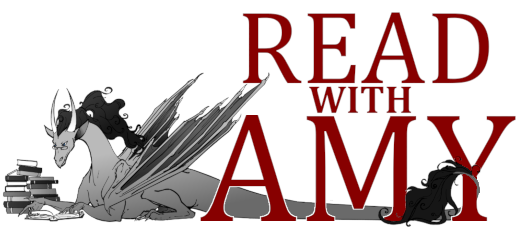
I am a sucker for fantasy books about teenaged girls as monster hunters. I buy them all. I read them all.
I dislike them all.
I dislike every, single, last one of them.
Don’t, I beg you, hold it against the books. Monstrousness—and especially the monstrous feminine—is a topic very near and very dear to my heart. Societies around the world have for millennia been all too happy to strip women of their power—any power—by recasting it as monstrous. It doesn’t matter if their power is born of transgression against prohibitive societal expectations or, conversely, conforming all too well. Power born of speaking up and speaking out or power born of being too compliantly pretty or too enthusiastically sexy are villainized equally. And heavens if myths, legends, and speculative stories from around the globe don’t have a ready monster for every transgressive female trait. If the furies are monsters, then women’s anger is monstrous. If the harionago are monsters, then every cute girl with amazing hair is monstrous. If the succubi are monsters, then women’s rapacious pleasure must be monstrous, too.
The problem with all these books about teenaged girls as monster hunters, of course—which we are not holding against them—is that they’re a bit too invested in that Nietzsche quote. You know the one: “Whoever fights monsters should see to it that in the process he does not become a monster. And if you gaze long enough into an abyss, the abyss will gaze back into you.” Easy enough, I suppose, for Nietzsche to engage in a bit of performative hand-wringing about the potential for monster-hunters to become monsters themselves. Easy enough, I suppose, when popular opinion is that, despite all evidence to the contrary, only those with vaginas are categorically monstrous.
And easy enough, I suppose, for authors to consider that quote and come down on the side of writing books where girls who fight monsters carefully choose not to become monsters themselves.
But what I want are stories about the women who fight monsters, and yes, become monsters themselves. Because what society deems monstrous in a woman is, by definition, damned near everything brave or bold or brilliant. If we fight back against the monsters that prey on us, we are deemed, by definition, monsters ourselves. We are the furies, the harionago, the succubi, the sirens. We are the witches, the banshees, the vampires, the kumiho. We are the yōkai, the crones, the she-wolves, la llorona.
We are monsters. We should never choose otherwise.
Despite my very firm convictions on this topic (as evidenced by my desire to graffiti “suck it” on the Nietzsche family crypt), not everyone agrees with me. So I keep reading these books. These books about teenaged girls as monster hunters that, for all their monsters and violence and gore, are very polite books with respect to the topic of monstrousness. And while we are not holding that against the books, perhaps you can imagine why I find these books so dissatisfying.
And perhaps you can imagine why I find these books so especially dissatisfying as they consider the monstrousness, or lack thereof, of teenaged girls. We are very quick, societally, to judge teenaged girls: how they talk, how they dress, what they like, how they spend their money, how they date, how they have sex, how they do this and that and every other damned thing in their lives. How much we must fear them, to judge them like we do.
No demographic needs to claim their monstrousness more than teenaged girls.
And instead, what authors of young-adult fantasy works continue to feed them is a steady diet of Nietzschean prescription: carefully constructed stories where they are prey, always prey, but never monsters, and in fact must take great care to never become monsters. These are instructional manuals about killing only the most overt of monsters, the ones who would rip your throat out, but never those that would deny your full humanity. These are instructional manuals about using only the tools that society has approved for you, never all the tools at your disposal. These are instructional manuals about #NotAllMen. But never, not once are these instructional manuals about how to become fearsome and powerful and self-determining and fucking monstrous.
There is, of course, a book—or a hundred books—underlying this review. But since we are not holding all these very polite narratives against the books themselves, it hardly seems fair to pick on the one that I happen to have read most recently or the one that makes me the most furious or the one that I remember the best. If you want that sort of story, that sort of polite service to an avoidance of monstrousness, those books are horrifyingly easy to find.
But if you want something with more teeth, more fang and claw, less politeness and more power, then I’ll let you know when I find it.
Before each conference, Sirens chair Amy Tenbrink posts monthly reviews of new-to-her fantasy and other interesting books by women, nonbinary, and trans authors. You can find all of her reviews at the Sirens Goodreads Group. We invite you to read along and discuss!
By day, Amy Tenbrink dons her supergirl suit and handles strategic and intellectual property transactions as an executive vice president of a major media company. By night, she dons her supergirl cape, plans literary conferences, bakes increasingly complicated pastries, and reads 150 books a year. She is a co-founder and current co-chair of Sirens, an annual conference dedicated to examining gender and fantasy literature. She likes nothing quite so much as monster girls, flagrant ambition, and a well-planned revolution.








You should def check out Monstress by Marjorie Liu, if you haven’t already 🙂